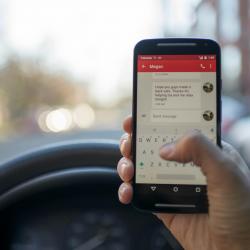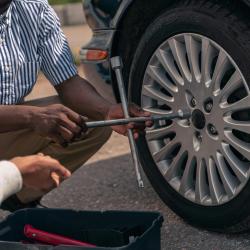How to Improve Your Reaction Time on the Road
Whether you’re a seasoned driver or new to the road, having quick reflexes is crucial for your safety and the safety of others. Reaction time is the interval between recognizing a hazard and taking action to avoid it. Improving your reaction time can mean the difference between a close call and an accident. Here’s how you can enhance your responsiveness when driving.
1. Understand the Factors Affecting Reaction Time
Before you can improve your reaction time, it’s important to understand what influences it. Several factors can affect how quickly you respond on the road:
- Age: As people age, their reaction times tend to slow.
- Fatigue: Tiredness can significantly dampen your responsiveness.
- Distractions: Mobile devices, chatting, or daydreaming can delay your reactions.
- Alcohol and Substance Use: These can impair judgment and slow down response times.
- Health Conditions: Certain conditions and medications can affect how fast you react.
2. Stay Physically Active
Physical fitness plays a crucial role in your response time. Exercise can enhance alertness, improve reflexes, and keep your mind sharp. Activities such as yoga, tai chi, or regular cardio exercises like running or cycling can improve overall reaction times. Focus particularly on exercises that require coordination and quick responses, such as playing table tennis or basketball.
3. Engage in Mental Exercises
Just as your body benefits from physical activity, your mind thrives on challenges. Mental exercises such as puzzles, brain games, or learning a new skill can boost cognitive function and, in turn, improve your reaction times. Techniques for improving concentration, like meditation or mindfulness, can also aid in maintaining focus while driving.
4. Get Adequate Sleep
Sleep is critical for optimal brain function. Exhaustion slows reaction time and impairs decision-making abilities. Strive for 7 to 9 hours of quality sleep each night. If you’re feeling drowsy, avoid driving — fatigue can be as dangerous as drunk driving.
5. Limit Distractions
In our technology-driven world, distractions are everywhere. Ensure your environment is conducive to focusing on the road by prepping your music or GPS settings before starting your journey. Keep your phone out of reach to avoid temptation. If you need to use your phone, pull over safely first.
6. Practice Defensive Driving
Being a defensive driver means anticipating potential hazards. By always maintaining a safe following distance, being aware of your surroundings, and expecting the unexpected, you’ll be better prepared to react swiftly. Defensive driving courses can be invaluable in enhancing your skills in this area.
7. Maintain your Vision and Hearing
Your ability to see and hear well affects your reaction times. Regular eye exams are crucial to ensure that your vision, including peripheral vision, is uncompromised. Similarly, maintaining good hearing health allows you to better interpret auditory signals, such as horns or emergency vehicle sirens.
8. Keep Your Vehicle in Good Condition
A well-maintained vehicle responds better to your actions. Regularly check brakes, tires, lights, and steering to ensure optimal performance. This mechanical readiness means that your quick reactions are backed up by an equally responsive vehicle.
Conclusion
Improving your reaction time on the road is a multifaceted process that involves both physical and mental readiness. By taking proactive measures to enhance your alertness and reducing risk factors that contribute to delayed reactions, you can make the roads a safer place for yourself and those around you. Reaction time may be a small part of driving, but its impact on safety is significant. Stay alert, stay active, and drive safely.






















